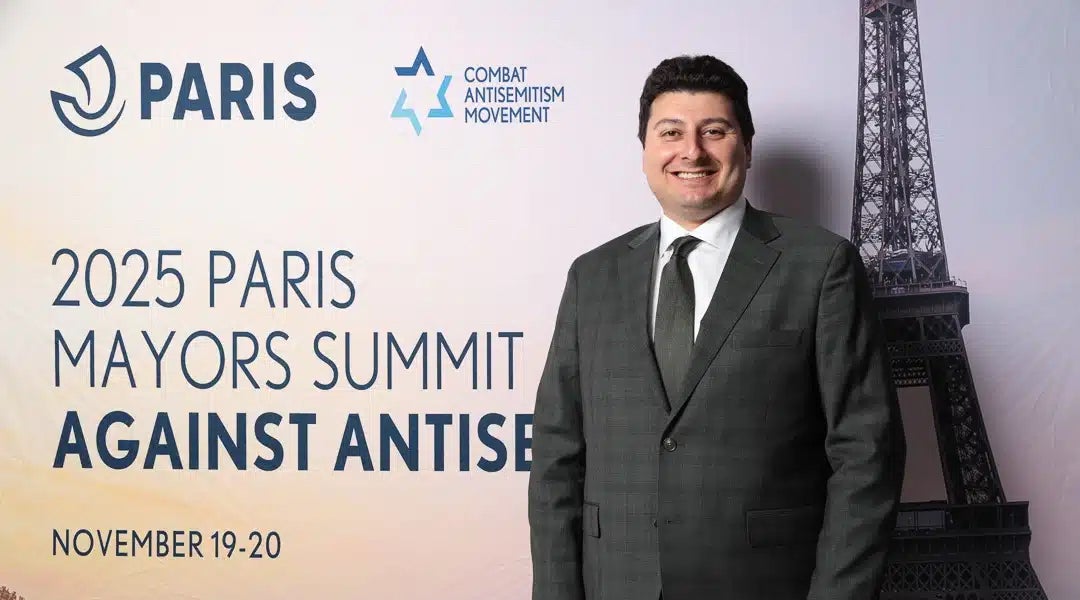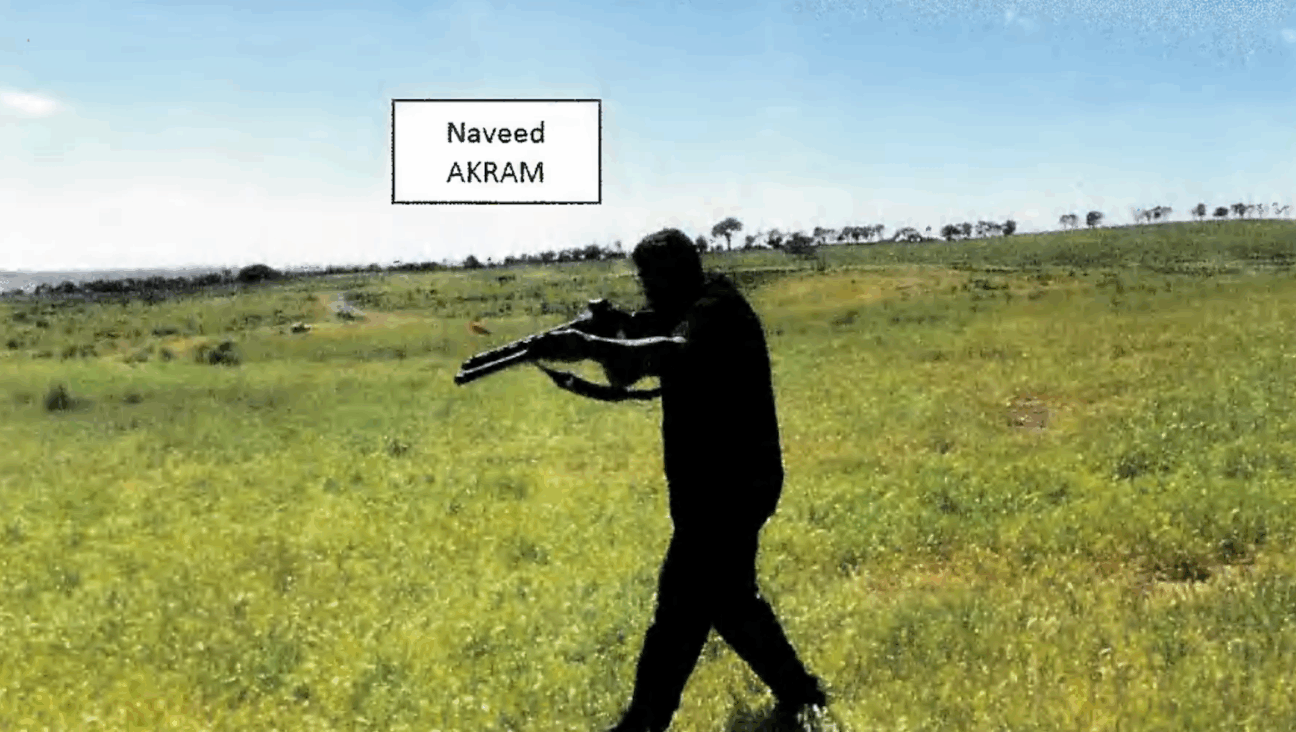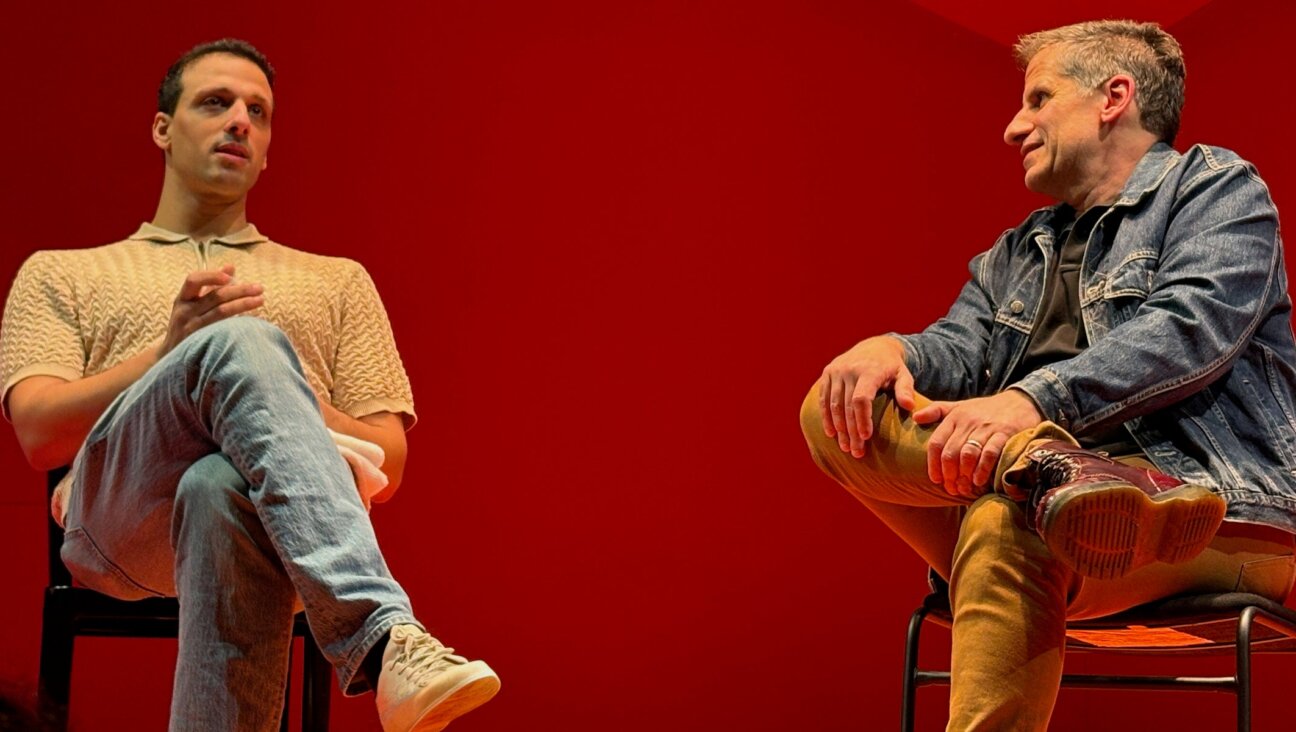CIA Said Jonathan Pollard Cooperated: Report

Graphic by Angelie Zaslavsky
CIA debriefers of Jonathan Pollard said the Israeli spy cooperated “in good faith” while in custody and that his handlers’ requests were limited to intelligence on the Pakistanis, Arab states and the Soviets.
The 1987 CIA damage assessment, published for the first time in a newly declassified version by the National Security Archive, a George Washington University project, recorded Pollard as “responding in good faith to debriefers’ questions.”
Polygraphs “tended to confirm that his cooperation with U.S. authorities was bona fide,” according to the assessment.
It also records, with confidence, the amount of intelligence that Pollard shared with Israelis, though the figure was redacted.
Both revelations undercut a key argument by figures in the national intelligence community who over the years have resisted calls to commute Pollard’s sentence based partly on arguments that he and Israel withheld the extent of his espionage while he was a U.S. Navy civilian analyst.
The CIA assessment suggests that the judge who ignored a plea agreement and sentenced Pollard to life did so because Pollard and his then-wife, Anne Henderson, broke the agreement by speaking to the media and not because of secret documents suggesting that Pollard had stolen more information than is believed – another predicate of arguments opposing Pollard’s release.
The document says that two of Pollard’s three handlers, Aviem Sella and Joseph Yagur, “emphasized that Pollard should obtain military and technical intelligence on the Soviet Union, Arab states and Pakistan.”
Rafi Eitan, another handler, wanted “dirt” on Israelis who may be passing on information to the United States, but Yagur later told Pollard that such information was off limits.
The document does not specifically address reports that Pollard shared information on U.S. agents with his Israeli handlers, but it does say that Pollard did not share, nor did the Israelis seek, the most sensitive information at hand.
“The Israelis did not request or receive from Pollard intelligence concerning some of the most sensitive U.S. national security resources,” the document says. “The Israelis never expressed interest in U.S. military activities, plans, capabilities or equipment. Likewise, they did not ask for intelligence on U.S. communications per se.”
A mostly redacted section asserts that “Pollard’s espionage has put at risk important U.S. intelligence and foreign-policy interests.”
The debriefers record Pollard as saying that Eitan offered him Israeli citizenship and protections, and grew angry when Pollard resisted expanding the scope of his espionage.
Israel’s embassy turned Pollard and Henderson away when his espionage was uncovered and did not confer citizenship until years later.
A long biographical section suggests that Pollard had a troubled emotional history based in part on anti-Semitic encounters during his youth in South Bend, Ind., and was a serial fabricator.
“He has tried to justify or rationalize his espionage as an effort to help a beleaguered Israel so that it would ‘win the next war’ against the Arabs,” the document says. “The Intelligence Community believes the Israelis readily would accomplish that objective without Pollard’s stolen intelligence.”
A bipartisan slate of 42 U.S. House of Representatives members, backed by the Conference of Presidents of Major American Jewish Organizations, this week urged President Obama to commute Pollard’s sentence – the latest of many such pleas since the mid-1990s.














